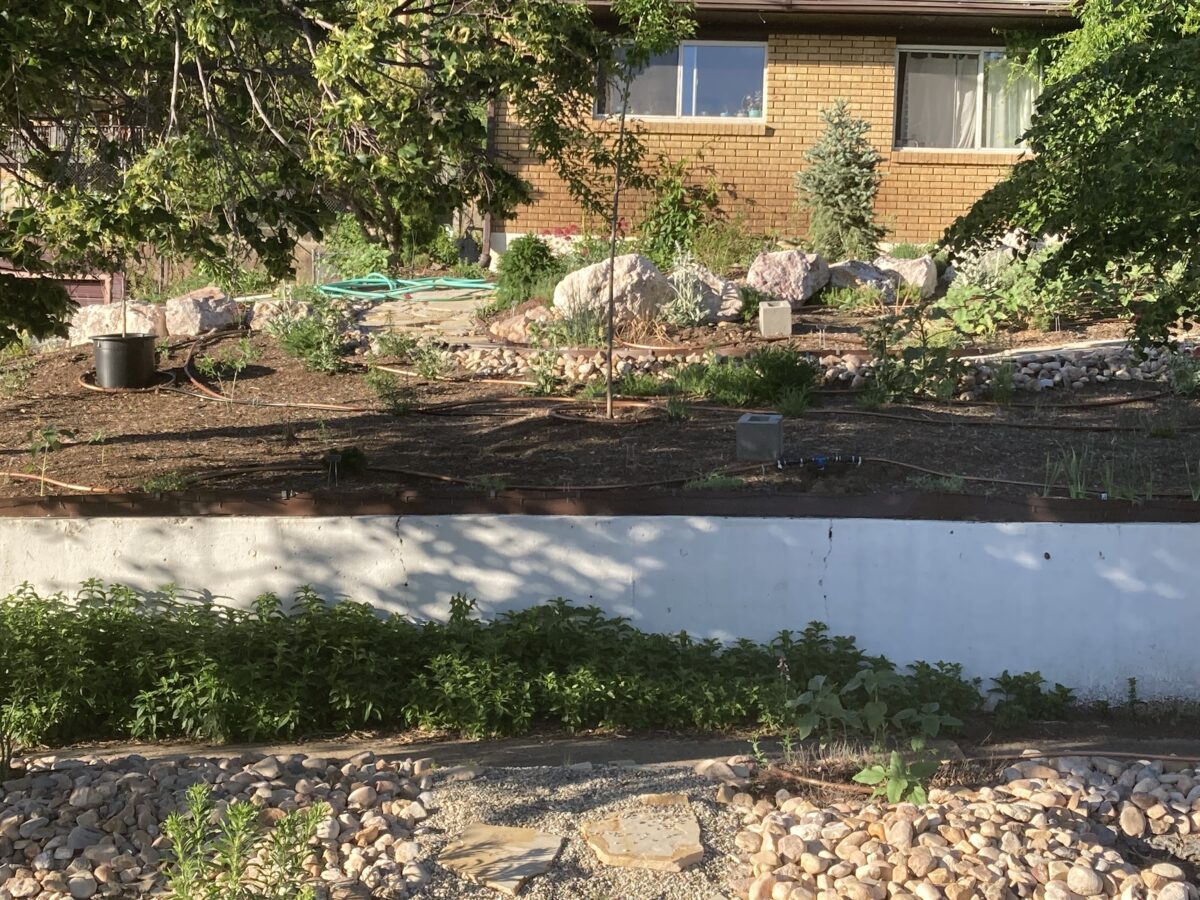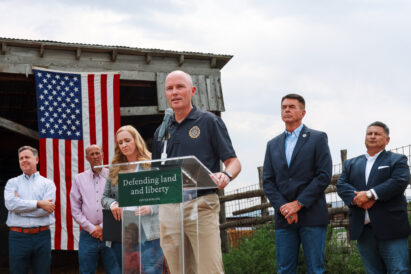Water levels driving Utahns to water-wise landscaping

Deborah Wilber, Standard-Examiner
Drip tape is shown in Carie Frantz's xeriscaped lawn on Monday, June 6, 2022.
OGDEN — Actions taken by water users within the Weber Basin Water Conservancy District, along with recent weather, has benefited water supply throughout the area. With reservoirs at 55% capacity, up from 35% in March, the district plans to move from their current response — level 5-extreme — to a level 4-severe, in accordance with their Drought Contingency Plan.
Scott Paxman, the district general manager and CEO, said they are thankful for those who responded to drought messaging and mitigation efforts by participating in conservation programs and landscape modifications.
According to Paxman, adopting sustainable water behaviors now will help prepare people for times of drought.
“Our communities will have meaningful impacts on all facets of our lives, now and well into the future,” he said.
Over 700,000 residents within Davis, Weber, Morgan, Summit and Box Elder counties receive water from district sources.

Deborah Wilber, Standard-Examiner
Carie Frantz's xeriscaped lawn is pictured Monday, June 6, 2022.
According to Paxman, late fall and early winter storms significantly impacted soil moisture throughout the watershed. However, mitigation measures are ongoing, including an early termination of irrigation system deliveries for wholesale and retail contracts in mid-September.
The district is encouraging the public to take advantage of its conservation programs, including educational classes, rebate programs and the “Learning Garden.”
To date, approximately 850 applications have been received by the district for their “Flip-Your-Strip” incentive program established last summer. Parking strips, the narrow strip of land between sidewalks and the road, are reportedly inefficiently irrigated and difficult to maintain.
With a significant amount of the water meant for parking strips ending up on sidewalks and roadways, the district initiated the program to get the public to switch to water-wise landscaping.
While some residents have debated whether or not they would switch the landscaping, Carie Frantz, an Environmental Scientist and Professor of Earth and Environmental Sciences at Weber State University, knew zero-scaping was something she was going to do.

Deborah Wilber, Standard-Examiner
Carie Frantz's xeriscaped lawn is pictured Monday, June 6, 2022.
Frantz began working on her water-wise landscape last year. She now has a website on the matter, explaining the process for people who may want to make the change, but don’t know how to do it. More information can be found at sites.google.com/view/cariescaping.
Paxman said cities and the public have been very receptive to the incentive. “Interest in the program has been exploding lately,” he said.
- Drip tape is shown in Carie Frantz’s xeriscaped lawn on Monday, June 6, 2022.
- Carie Frantz’s xeriscaped lawn is pictured Monday, June 6, 2022.
- Carie Frantz’s xeriscaped lawn is pictured Monday, June 6, 2022.






